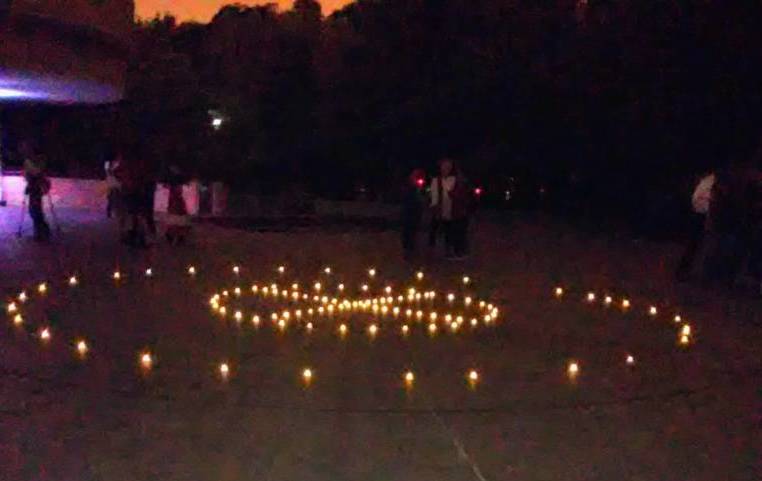On the morning of Sept. 11, while working in the NoMa area, I happened to meet two Native American women who bought a newspaper from me. Some conversation revealed they were from Devils Lake, North Dakota. I was very happy to meet them because I actually lived in Devils Lake near a reservation for six months before moving on to live in Bismarck, North Dakota. We had a lot of smiles and good conversation about my stay there.
They had traveled all this way to attend a candlelight vigil for missing and murdered Native American women. It was scheduled for that evening at the National Museum of the American Indian and I told them I would be there to give my support and prayers.
I arrived around 8 p.m., 30 minutes before it ended. A Native American woman spoke about the murder of her daughter and how the accused was only sentenced to three years in prison.
There was a prayer at the end, and then I had a chance to interview two women from the First Nations Women’s Alliance in Devils Lake.
Community Coordinator Ashley Roulette said the group was there to stop the trafficking, abuse, domestic violence, stalking and murder of Native American women and girls. “Nobody even knows or cares,” Roulette said. “If it was someone who is not Native American, it would be all over the news.”
Last year, North Dakota Senator Heidi Heitkamp introduced legislation to improve how law enforcement tracks these cases. According to her webpage about the bill, citing a national study, “56 percent of Native women have experienced sexual violence in their lifetime, and 38 percent were unable to receive any type of victim services. The high rates of sexual violence are closely interconnected with the likelihood of Native women going missing or being murdered, and on some reservations, they are murdered at more than ten times the national average.”
A study by the Urban Indian Health Institute about Native women in Seattle found that 94 percent of survey respondents had been raped or coerced into sex, often by non-Native men.
Times have certainly changed from when I used to live in Devils Lake. I worked as a volunteer at the police station there. These issues were unheard of back in 1991.








